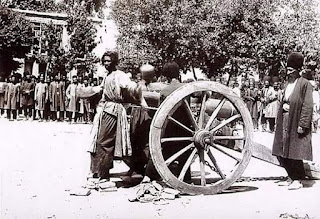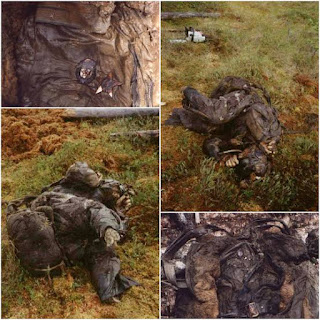Brief history of king Cyprus the great
Time has erased much of our history, and the vast majority of people who have ever lived on Earth are gone, with neither their bones nor their names surviving to the present day.
But history does remember some people, for good or for bad. Some peoples names survive with their reputations intact—even enhanced, while others are less fortunate. History, as we know, is a very debatable subject and the further back we go, the more debatable it becomes. Those people who once lived and breathed in the distant past are not with us to tell us who they were. All we have are their names to identify them and their stories to study.
Let us now travel back approximately 2,600 years, to the Middle East, where in present-day Iran a baby boy was born, a boy who would survive the various dangers of childhood to grow into a man; a man who would become the most powerful ruler of his time; a ruler who, with a mixture of conquest and diplomacy, would create a huge empire and allow his subjects to live and worship freely; a ruler who, today, is recognised, by some, for his achievements in human rights and politics and whose positive reputation has survived through the ages. This is the story of Cyrus the Great, king of kings.
. . .
Cyrus ll, known to history as Cyrus the Great or Cyrus the Elder, was one of the greatest rulers of the ancient world. He was born c. 600 BC possibly in Ecbatana, capital city of the Median Empire, which stretched across present-day Iran and eastern Turkey; another possible birthplace was Anshan in Persis (Persia) present-day Iran. His mother was Mandana, the daughter of Prince Astyages, son of Cyaxares, king of Media.
Astyages was a very superstitious man. According to the ancient historian Herodotus, before Cyrus was born, Astyages had a dream that water poured from his daughter and flooded all of Asia. Curious as to what this dream could mean, Astyages summoned the Mesopotamian priests, known as the magi, to decipher the dream. They told the prince, "your dream, sire, signifies that the offspring of your daughter will reign over Asia instead of you." On hearing this, Astyages decided against marrying his young daughter to a Median noble to avoid her offspring becoming eligible for the Median throne. Instead, he married her to a Persian noble named Cambyses, son of Cyrus l, king of the city of Anshan in Persis, a subservient province to the Median Empire. Cambyses was a descendant of Achaemenes, founder of the Achaemenid clan. He was a worthy partner for Mandana, one who Astyages believed offered little threat to his position.
Not long after Cambyses had married Mandana, Cyrus l died and Cambyses succeeded him to the throne of Anshan. Mandana was now queen of Anshan and to her joy she fell pregnant. But Herodotus tells us that her superstitious father had yet another dream. This time a vine grew from his daughter and covered Asia Minor. This dream was deciphered by the magi and to his horror, they told Astyages his dream was a warning that the child of Mandana would rule over Asia instead of him. What was Aystages to do? Kill his daughter? No, he apparently loved her too much to hurt her. Instead he decided to have her brought to Ecbatana where she was kept under a watchful eye. There was only one thing on Aystages' mind and that was to kill his daughter's baby as soon as she had given birth. But he would not do it himself.
Mandana eventually gave birth to a boy who she named Cyrus (Kūruš in Persian) after his paternal grandfather, Cyrus l. With the baby now born, her father ordered a trusted man and relative named Harpagus to take the boy away and kill him. Harpagus agreed, but for him this was an order too far.
He could not kill an innocent baby, so he secretly gave him to a shepherd named Mithradates and told him to leave the boy in the mountains where he would die from exposure. Mithradates agreed and took the baby back to his pregnant wife, Cyno, in the mountains. While he had been away Cyno had given birth to a baby boy, but the baby was still-born.
The grieving Mithradates and Cyno could not neglect the royal baby and leave him to die and thus decided to raise the boy as their son. They wrapped their own dead baby in the clothes of the royal baby and Mithradates left the corpse of his son in the mountains as proof that he had carried out his duty.
Meanwhile, Queen Mandana was told her baby had died from natural causes and she returned to Anshan grief-stricken. But high in the mountains her son was alive and well. He was raised in secret and given the name Agradates. In time he would return as Cyrus.
It is debatable whether there is any truth in this account of his early life. But different accounts agree on one thing: Cyrus spent some of his youth in the court of Astyages, who became king of the Median Empire in c. 585 BC. Herodotus tells us this was after Cyrus had returned from his adoptive home, but just like much of ancient history, it is difficult to know for sure.
He also tells us that when Astyages became aware that Cyrus was still alive, he punished Harpagus, the man he had ordered to kill him, by apparently killing his son and chopping his body into pieces. He then tricked Harpagus into eating the cooked meat of his own son.
In c. 559 BC Cyrus became king of Anshan in Persis, after succeeding his father, Cambyses I. At this time in history there were three major powers in the Middle East: the Median Empire, Babylonia, and Lydia. Persis, as mentioned above, was a subservient province to the Median Empire.
According to Herodotus, Harpagus was enraged at what Astyages had done to his son. He contacted Cyrus and told him if he revolted against Astyages he would gather support from within Media to aid him in toppling Astyages and taking the throne for himself. And so it happened, in c. 553 BC Cyrus revolted against the Median Empire. King Astyages marched against him but he was defeated in battle and a large portion of his army joined Cyrus, just as Harpagus had promised.
After his victory over Astyages, Cyrus founded the city of Pasargadae on the site of the battle. The city would serve as the ceremonial capital of Cyrus' new empire, the Achaemenid Empire (Persian Empire), for a few decades, before Persepolis took that role.
Astyages fate is debatable. Acording to Herodotus, Cyrus spared the life of Astyages. The ancient Greek historian, Ctesias, tells us that Astyages was forced to walk miles through the wilderness to meet Cyrus and during this ordeal he suffered from fatigue, hunger and exposure before eventually dying. We will likely never know the truth.
With the Median Empire now under his rule, Cyrus set his sights on the wealthy Lydia to the west, whose king, Croesus, had invaded Cyrus' newly conquered lands.
The campaigns against Lydia took place in c. 545 BC. The initial battle between the two powers was a stalemate, but Cyrus pursued the Lydian army and was victorious. The Lydian army then retreated to the city of Sardis, which was besieged for 14 days before it finally fell to the Persians. The fate of King Croesus is not known.
The people of the Lydia accepted Cyrus' rule and he granted them freedom to live as they had before. The wealth of the newly conquered empire enriched Cyrus' treasury. He then turned his focus to Babylonia and with a huge army he marched into the kingdom and destroyed the Babylonian army near Opis.
He then set his sights on the great city of Babylon, whose citizens had apparently grown resentful towards their own king, Nabonidus, as he had neglected their favoured god, Marduk. He also apparently imposed forced labour on the population.
Accounts differ as to what happened when Babylon was captured by the Persians. Apparently Cyrus diverted the Euphrates river which lowered the river and moats, thus facilitating an attack on the city. Whether this is true or not, what is clear is that King Nabonidus was defeated and Babylonia fell to Cyrus.
When he arrived at the city of Babylon he was welcomed into the city where he publicly worshipped Marduk. He also released the Jews from captivity and allowed them to return home. He was praised for this in the Hebrew Bible, which describes him as "anointed by God".
Following his capture of Babylonia, Cyrus issued the Cyrus Cylinder which is agreed by many to be a work of propaganda. In it Cyrus has himself portrayed as a great king, whereas his defeated enemy, Nabonidus, is portrayed negatively. The cylinder also records Cyrus' tolerant attitude to his subjects religions and their ways of life. The cylinder was discovered in the ruins of Babylon by Hormuzd Rassam in 1879.
Following his conquest of Babylonia Cyrus became arguably the most powerful man on the planet. He described himself as "king of the universe, the great king, the powerful king, king of Babylon, king of Sumer and Akkad, king of the four quarters of the world."
To keep control of his new empire Cyrus appointed Persian satraps to govern over provinces known as satrapies. But he also allowed the local officials to maintain their positions and conquered enemies of power were given roles in government. This way, the administrative infrastructure remained intact. But Cyrus also appointed an inspector-general who inspected the satrapies for corruption or oppression. This inspector was called the King's Eye and reported directly to Cyrus.
To keep the peace Cyrus allowed his subjects to live and worship freely and he accommodated their cultural and religious practices. Many of his subjects apparently saw him more as a liberator rather than a conqueror.
In c. 530 BC, Cyrus died. Various accounts differ on the cause of death. Herodotus tells us that he died in battle against Queen Tomyris of the Massagetae, a nomadic people. Tomyris allegedly decapitated Cyrus to avenge her son's death that the king had apparently ordered. It is possible Cyrus died in battle but it is not confirmed.
Following his death, Cyrus was buried and it is believed his tomb is in Pasargadae, Iran. The tomb does fit the descriptions given in ancient accounts and its location in Pasargadae, the first ceremonial capital of the Achaemenid Empire, founded by Cyrus himself, does add legitimacy to the claim, but is difficult to be completely sure. According to the ancient historian Plutarch, an epitaph on the tomb once read:
"O man, whoever you are and wherever you come from, for I know you will come, I am Cyrus who won the Persians their empire. Do not therefore begrudge me this bit of earth that covers my bones."
Cyrus the Great was succeeded by his son, Cambyses II, who took over the rule of the empire that his father had built, an empire that would continue to expand and thrive for another two centuries.
. . .
During his reign Cyrus the Great expanded his realm to become the founder of the Achaemenid Empire. His empire, although mainly built on blood and conquest, was merciful to conquered people and because of this, some enemies surrendered without a fight, choosing Cyrus over their own despotic rulers. According to the ancient Greek historian Xenophon, who was admittedly pro-Cyrus:
"And those who were subject to him, he treated with esteem and regard, as if they were his own children, while his subjects themselves respected Cyrus as their "Father" ... What other man but Cyrus, after having overturned an empire, ever died with the title of "The Father" from the people whom he had brought under his power? For it is plain fact that this is a name for one that bestows, rather than for one that takes away."
And over 2,000 years after his death, Cyrus, through the Cyrus Cylinder, had an influence on the United States Bill of Rights, which guaranteed civil rights and liberties to the people, including freedom of speech and religion. Although it may be something of an overstatement to call Cyrus benevolent, he certainly seems fairer than the majority of leaders from the ancient world. He was a man of conquest, a man of diplomacy, a man of mercy, and a man who belongs to both history and legend. Cyrus the Great was one of the most influential rulers in antiquity, and by the time of his death, his empire, stretching from the Aegean Sea in the west to Bactria in the east, was the largest the world had ever seen.
Book sources:
Cyrus the Great: Conqueror, Liberator, Anointed One
Cyrus the Great: A Life from Beginning to End

.jpg)


.jpeg)




.jpeg)

Comments
Post a Comment